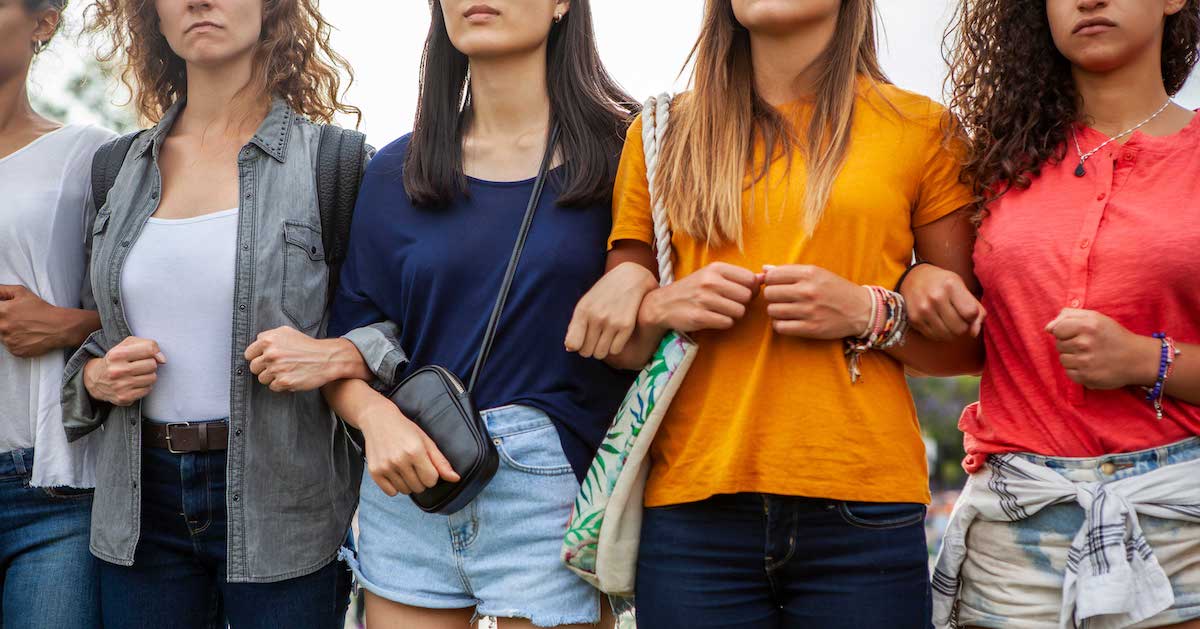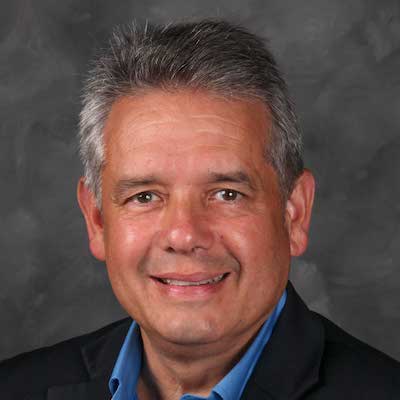There’s a quote from famed anthropologist Jane Goodall that inspires Sarah Kelley Freeman: “What you do makes a difference, and you have to decide what kind of difference you want to make.”
It is that mantra that motivates Freeman (MPI Tennessee Chapter) and Angessa Lynn Hughmanick (MPI Greater New York Chapter) to lead MPI’s efforts to support women meeting professionals.
As the industry continues to grapple with the economic and personal upheaval thrust upon families, livelihoods and communities due to the effects of the COVID-19 pandemic, Freeman and Lynn Hughmanick have set a course to ensure that women in the industry continue to garner much-needed attention.

MPI Women community Specialized education designed to help you fulfill your career potential.
“Coming out of this current season, we all have the opportunity and privilege to redefine who we are, what we do and how we do it,” says Freeman, director of sales for Evolution Event Solutions. “Don’t let this opportunity pass you by.”
Lynn Hughmanick agrees wholeheartedly.
“We are living during a historically significant time and we have the power to write the next empowering chapter for our fellow women,” says Lynn Hughmanick, strategic business development director for MJM Creative Services.
Continued Awareness and Conversations
A recent United Nations Women report revealed that women were bearing the brunt of the economic and social fallouts of COVID-19, citing data showing that women earn less, have little in savings and are more likely to be burdened with unpaid care and domestic work—and also make up the majority of single-parent households.
The meeting industry was among the hardest hit by the pandemic. According to the U.S. Bureau of Labor Statistics, employment in leisure and hospitality fell by 498,000 in December. Overall, the U.S. industry has recovered 4.4 million, or 53 percent, of the 8.3 million jobs lost in March and April.
The Center for American Progress, an independent nonpartisan policy institute, studied labor department statistics and found that over the course of the first 10 months of the pandemic, women—particularly women of color—have lost more jobs than men, as industries dominated by women have been hit the hardest. Overall, women have lost a net of 5.4 million jobs in the U.S. during the recession, nearly 1 million more job losses than men.
International Women’s Day, March 8, 2021 #ChooseToChallenge
“The rate that women left the workforce in 2020 to support the changing needs of their families is concerning,” says Rebecca DeLuca, director of key accounts and strategic partnerships at Caesars Entertainment, a founding member of the MPI Women Advisory Board and co-chair of the group in 2020. “It is an issue that should be openly discussed as our industry brings employees back to work in 2021 and beyond. Increased work-life flexibility for all employees and a reassessment of workplace norms is already happening, which is an encouraging sign that the meetings industry will lead the way. Continued conversations and awareness will provide a clear path for women returning to the workforce.”
While vaccine distribution and implementation of aggressive health and safety protocols has created optimism for the return of business meetings, the industry, of which women make up 70 percent to 80 percent of the workforce, is still striving for a path to recovery.
Freeman says a pressing concern is the stress put on women during the pandemic.
“Women are expected to wear so many different hats—professional mom, wife, housekeeper, grocery shopper, mediator, educator and much more,” she says. “The stress to perform in all aspects of your life is higher now than ever for women, which is leading to depression, burnout and more.”
A Strategic Focus
Lynn Hughmanick says the pandemic has impacted the initiatives and operational focus of the committee.
“As an industry leader, I believe it is important to understand everyone’s time constraints, personal strengths, challenges and goals while listening closely to what the collective group needs are,” she says. “For example, being aware of the impact the pandemic has had on our time, we offered to hold less MPI WAB meetings in the calendar year. I was touched to learn that the group wanted to put the same amount of time into meeting, even with all of the things we are juggling. This indicated the level of dedication this group of women has to serving on this board.”
The committee is currently focusing on these key areas.
· Community outreach, including support for women who have lost their jobs.
· Resources, such as providing free education, support and opportunities for women to learn, connect, grow and reach out for help.
· Support and connection with other professionals.
“We can and should support the industry by doing what women do very well—lead with empathy, empower each other and progress with positivity.”
“We want to be transparent, authentic and empathetic now more than ever, in our personal lives, but also professionally,” Freeman says. “Bringing all three of those attributes to the table in the professional world has not always been seen as a positive, but after 2020 that is what people need, and the kind of person you want to work with. I think it has allowed us to be ourselves and have more open conversations without the fear of judgement.”
Lynn Hughmanick says the board has become more conscious of and realistic about its goals for 2021.
“Instead of trying to tackle too many ambitious projects, we decided to scale back and aim to conquer less, in a thoughtful and potentially more impactful manner,” she says.
For example, due to the staggering job loss in the meeting industry, the topic of re-skilling keeps resurfacing.
“Our board is passionate about securing the accessibility of educational tools like classes, webinars, certifications and materials for those who are either looking for a new job or need to expand their skillset because their team has decreased, causing their job responsibilities to increase,” Lynn Hughmanick says.
Zest and Passion
Kelly Saling, vice president of convention sales and services for Visit Seattle, which sponsored MPI Women in 2020, says her favorite part of the group was “the spark from these female leaders. The zest and passion for the industry, for empowerment and equity is so incredibly timely and helpful.”
She adds that while women have been most affected by the pandemic, in many ways, “we’ve not yet changed archaic systems or found relief. There is some societal empathy, but leaders like those on the WAB are working toward solutions—true resources for development like reskilling, lifelines to available benefits, encouragement to seek wellness and directions for how to get there.”
It’s important to get the message to a broader audience and not only work on ways to support women in the industry, but also work to ensure that circle of ongoing contribution and development continues, Saling says.
THE MPI WOMEN COMMUNITY
“MPI launched our vertical communities a few years ago to align with special interest groups in our membership,” says Annette Gregg, senior vice president, experience for MPI. “MPI Women was one of the first to come to mind. With our industry and membership being overwhelmingly female, we wanted to address the unique challenges that women face in business. The MPI Women Advisory Board (WAB) focuses on the issues most relevant and timely for that community and provides thought-provoking dialogue and valuable resources to support women in our industry.
“COVID has widened the business gender gap with more women out of work or unable to return to jobs due to childcare complexities, so I can’t think of a more relevant and important time for a community like MPI Women that provides resources and support.”
Among the group’s accomplishments: generating additional resources on MPI.org, including a wage gap infographic, wellbeing resources and the Quarantine Survival Strategies whitepaper.
MPI’s Women in Leadership: Executive Skills Certificate Program Create an action and development plan that advances your career.
“An intangible evolution of the WAB was an understanding that we can and should support the industry by doing what women do very well—lead with empathy, empower each other and progress with positivity,” DeLuca says.
Last year, the group intentionally shifted its focus to identify the immediate needs of the community, specifically those of women as caretakers that tend to focus on the needs of everyone else around them first.
“Through our raw, authentic and sometimes emotional conversations we created the Quarantine Survival Strategies whitepaper,” DeLuca says. “We also created a social media campaign to raise awareness around mental and physical wellbeing and serve as a resource of empathy and support.”



